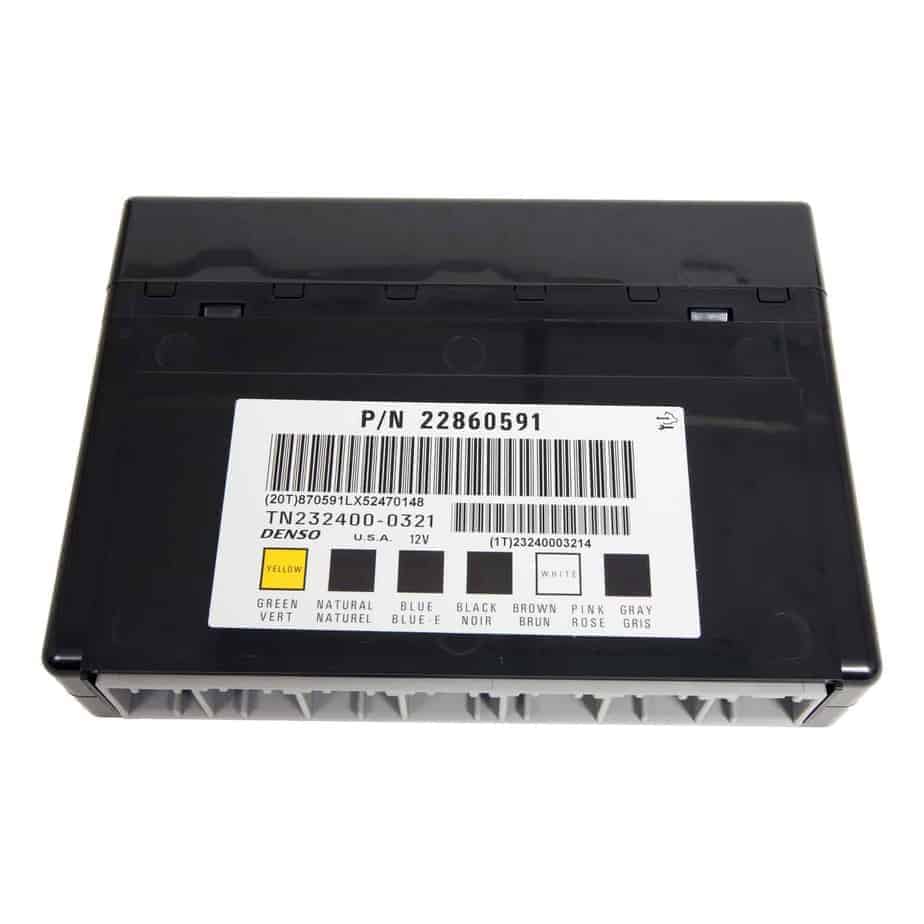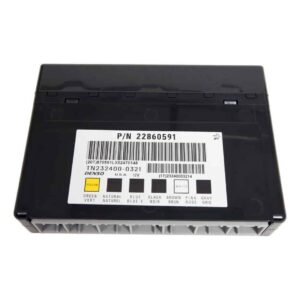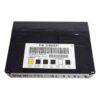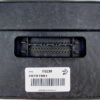Restore Your Vehicle’s Electrical System with a VIN-Programmed BCM
If you’re dealing with bizarre electrical issues in your 2012 Chevrolet Captiva or another compatible GM vehicle, a failing Body Control Module (BCM) is often the culprit. As the central hub for your vehicle’s body electronics, a faulty BCM can cause a cascade of frustrating problems, from flickering lights and malfunctioning power windows to a no-start condition. This isn’t just an annoyance; it can be a serious safety concern. We offer a reliable, direct-fit solution with this Body Control Module, which arrives at your door pre-programmed with the latest GM software, specifically matched to your vehicle’s VIN.
A Technician’s Notebook
A customer brought in a 2012 Acadia last month with a list of symptoms that seemed unrelated: the radio would turn on and off by itself, the driver-side window wouldn’t go down, and the anti-theft light was flashing intermittently, sometimes preventing the car from starting. They had already replaced the battery and checked the alternator. After hooking up the scan tool, I saw multiple communication error codes pointing back to the BCM. It’s a classic case I’ve seen hundreds of times. Water intrusion from a leaky windshield seal had corroded a few pins on the original module. Installing a VIN-programmed BCM like this one resolved all the issues in one shot, saving the customer a tow to the dealership and hundreds in diagnostic and programming fees.
Common Signs of a Failing BCM
- ✔ Erratic or non-functional interior and exterior lights.
- ✔ Power windows, locks, or mirrors working intermittently or not at all.
- ✔ The security system engaging randomly, causing a no-start condition.
- ✔ Dashboard warning lights (like the airbag or ABS light) staying on.
- ✔ Wipers or horn activating unexpectedly.
- ✔ Communication error codes stored when checked with a diagnostic scanner.
A Straightforward Guide to Your BCM Installation
Replacing the BCM is a manageable job for a confident DIYer or any professional technician. Our pre-programming service eliminates the most complex step, but proper installation is key.
- Safety First: Always disconnect the negative terminal from your vehicle’s battery and wait a few minutes for the system to discharge completely.
- Locate the BCM: On the 2012 Captiva, the BCM is typically located in the center dash area. For other models, its location can vary (e.g., under the steering column or behind the LH dash panel). Refer to your service manual for the exact position.
- Disconnect and Remove: Carefully unplug the electrical connectors from the old BCM. They have locking tabs that need to be depressed. Once disconnected, unbolt or unclip the old module from its mounting bracket.
- Install the New BCM: Mount the new, pre-programmed BCM in the same location and securely reconnect all electrical connectors. Ensure they click into place.
- Reconnect Battery: Reattach the negative battery terminal.
- Perform Final Procedures: Follow the critical post-installation steps below to ensure full functionality and safety.
Important Final Steps After Installation
After the physical replacement, a few final software procedures are required to sync the new BCM with other vehicle systems. These steps typically require a professional-grade diagnostic scan tool.
- Airbag System Reset: To clear the airbag warning light, you must perform the ‘Setup SDM Primary Key in BCM’ procedure. This re-establishes the security handshake between the new BCM and the airbag system’s Sensing and Diagnostic Module (SDM).
- Brake Pedal Position Sensor Relearn: Some vehicles will require a brake pedal position sensor recalibration. This ensures the brake lights and stability control system receive accurate input from the brake pedal.
- Key Fob Reprogramming: You may need to perform a key fob relearn procedure so your vehicle recognizes your remote(s).
Will This Fit My Vehicle?
This BCM is a direct replacement for a wide range of GM vehicles and supersedes multiple part numbers. Please verify your part number or match your vehicle from the list below. This module is compatible with part numbers: 10382479, 15093910, 15276271, 15299986, 15819552, 15828601, 15837419, 15872388, 15872421, 15880684, 15921352, 15921353, 15948438, 15948439, 20815898, 20839063, 20864767, 20864768, 20921435, 20921436, 20935349, 22860591, 25826124, 25826125, 25847588, 25847589, 25892622, 25910474, 25934762, 25934763, 95151084.
Fits models such as: Acadia (07-12), Avalanche 1500 (10), Captiva Sport (12), CTS (08-13), DTS (06-11), Enclave (08-12), Equinox (07-09), Escalade (10), Express/Savana Vans (08-12), Impala (06-13), Lucerne (06-11), Monte Carlo (06-07), Suburban (10), Tahoe (10), Traverse (09-12), Yukon (10), and more. Please check the detailed fitment data to confirm compatibility.
Frequently Asked Questions
What exactly does a Body Control Module do?
The BCM acts as the central computer for your vehicle’s body electronics. It controls non-engine related functions like power windows, locks, lights, wipers, security system, and the instrument cluster.
Why do you need my VIN number?
We require your Vehicle Identification Number (VIN) to program the BCM with the correct software and vehicle-specific settings from GM. This ensures the module works perfectly with your car’s options and security system, saving you a costly trip to the dealership for programming.
Is this a plug-and-play part?
Because we pre-program it to your VIN, it is as close to plug-and-play as possible. However, as noted above, you will need a capable scan tool to perform a few final relearn procedures, such as the airbag system key setup and potentially a brake pedal sensor relearn, to ensure all systems function correctly.
Can I install this myself?
A person with moderate mechanical skill can physically install the module. However, the required post-installation procedures (like the SDM key setup) necessitate a professional-grade diagnostic tool. If you don’t have access to one, we recommend having a qualified mechanic complete the final steps.
Will this fix my check engine light?
A failing BCM typically does not cause a check engine light, which is related to the engine and emissions systems managed by the Powertrain Control Module (PCM/ECM). A BCM failure is more likely to cause other warning lights like the airbag, security, or ABS lights.



